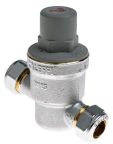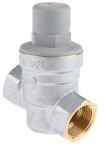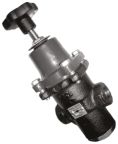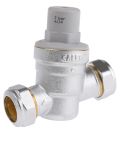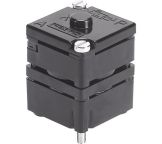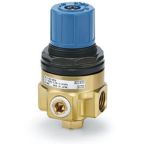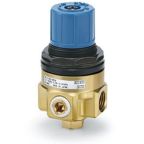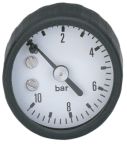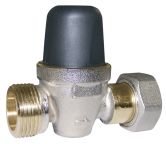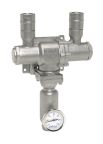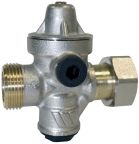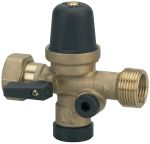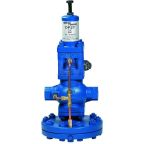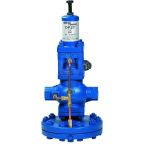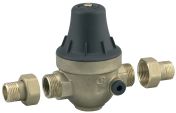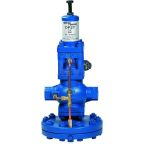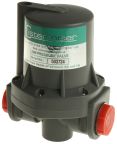- Automation & Control Gear
- Cables & Wires
- Enclosures & Server Racks
- Fuses & Circuit Breakers
- HVAC, Fans & Thermal Management
- Lighting
- Relays & Signal Conditioning
- Switches
- Batteries & Chargers
- Connectors
- Displays & Optoelectronics
- ESD Control, Cleanroom & PCB Prototyping
- Passive Components
- Power Supplies & Transformers
- Raspberry Pi, Arduino, ROCK, STEM Education & Development Tools
- Semiconductors
Pressure Reducing Valves
Pressure reducing valves are essential to any plumbing system or industrial process. Not only do they help maintain a safe and consistent level of pressure, but they can also protect your equipment from costly damage.
Whether you're an experienced engineer, handyperson, or homeowner, it pays to know a bit about these fantastic devices. This article will explain the water pressure regulator valve and why you should use them in various scenarios.
What is Water Pressure Reducing Valves?
The water pressure regulator valve is an essential part of the plumbing system for residential and commercial buildings. These valves help control the water flowing through a supply line, reducing wear and tear on pipes. They also help to prevent damage from too much water pressure by lowering it to desired levels before it enters the building.
If you're looking for a way to improve your plumbing system, installing a home water pressure regulator is a great choice. Not only will it ensure that your pipes aren't exposed to too much pressure, but you'll also save money on energy bills as less energy is needed to push water through at lower pressures. Plus, these valves don't require excessive maintenance. Simply replace them every five years, and you should be good.
Why You Should Use Home Water Pressure Regulator
One of the significant reasons you should use a water pressure reducing valve is that it helps reduce the risk of damage to components from overpressure or underpressure. When the wrong type or amount of pressure is applied, it can cause severe damage to pipes, pumps, and other parts inside your system. Home pressure valves ensure that only the correct amount of pressure reaches these components so they stay safe and operational for as long as possible.
Pressure reducing valves by RS offers a wide range of solutions for any application. With their ability to reduce the pressure of fluids, these valves can help improve efficiency in many industries, such as manufacturing, energy production and water treatment.
Related links
- RS PRO Pressure Reducing Valve, 3/4 in Screwed Iron Female
- RS PRO Pressure Reducing Valve, 1/2 in Screwed Iron Female
- Bosch Rexroth Hydraulic Pressure Reducing Valve 75bar
- RS PRO Pressure Reducing Valve, 1 in BSP Female
- RS PRO Pressure Reducing Valve, 22 mm Compression
- RS PRO Pressure Reducing Valve, 15 mm Compression
- RS PRO Pressure Reducing Valve, 1/2 in BSP Female
- Hydraulic Pressure Reducing Valves


